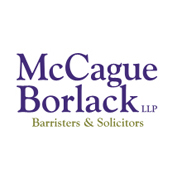Major COVID-19 vaccine producers are attempting to have their vaccines approved for use in children as young as five (5) years old.1 With their approval, separated parents' beliefs about whether their child should receive a COVID-19 vaccination is an issue with the potential to further divide families. McCague Borlack LLP's Family Law Practice Group is closely watching how the caselaw develops around COVID-19 vaccinations and children.
In Ontario, some recent cases discuss whether one parent can have exclusive authority over vaccination-related decisions for their child while the other is against it. These cases stand for two general principles: it is generally in the best interests of the child to be vaccinated; however, if a mature child can provide consent about medical treatment, they will very likely be able to refuse the vaccine, as is their right under the Health Care Consent Act.2
To provide consent, the child must be able to “understand the information that is relevant to making a decision about the treatment...and be able to appreciate the reasonably foreseeable consequences of a decision or lack of a decision.3 This test will be applied on a case-by-case basis.
In B.C.J.B., the father was granted sole decision-making power over whether to vaccinate the parties' 10-year-old child with a future COVID-19 vaccine approved for use in children.4 The mother argued against vaccinating the child against COVID-19. In this case, vaccination was in the best interests of the child, who also did not have a sufficient level of maturity to make the decision themselves.5
The Court held that the best interests of the child were to be vaccinated. |
In I.S., the mother, who had sole authority over medical care and decision-making, was against administering any vaccines to her 5-year-old child.6 The Court held that the best interests of the child were to be vaccinated.7 While this case did not speak directly to the COVID-19 vaccine, as it was not widely available, it speaks to how government-recommended vaccinations, generally, are in the best interests of children.
In Tarkowski, the Court granted sole decision-making responsibility in all areas to the mother of the parties' child except for decisions concerning ongoing and future vaccinations. It held the father would have sole decision-making responsibility to decide whether to vaccinate the parties' child against COVID-19, even if the mother refused to consent.8
In Saint-Phard, the father was granted sole decision-making responsibility concerning whether to vaccinate the parties' 14-year-old child against COVID-19.9 The Court stated that the applicable government authorities concluded the COVID-19 vaccine is safe and effective for children aged 12-17.10 The Court also found the child did not have an accurate understanding of the risks and benefits of receiving the vaccine.11 His physician and mother had misinformed him. The best interests of the child were to be vaccinated against COVID-19.12
If you are in a dispute with your child's parent regarding whether they should be vaccinated against COVID-19 or generally, we would be pleased to help you navigate the legal and interpersonal dynamics. As of the date of publishing, many of the referenced decisions are still within the appeal period, thus it is important for that reason and generally-speaking that you seek legal advice.
*Addendum January 11, 2022 - As can be expected during a pandemic, the case law on this issue is rapidly evolving - including but not limited to changes to the judicial treatment of the decisions highlighted in this article. An update to this article will be published shortly. We recommend that you do not rely on this version at this time. For this reason and generally-speaking, it is important that you seek legal advice.
- Pfizer And BioNTech Announce Positive Topline Results From Pivotal Trial Of Covid-19 Vaccine In Children 5 To 11 Years (September 2021)
- Health Care Consent Act, SO 1996, c 2, s 10.
- Ibid at s 4(1).
- B.C.J.B. v. E.-R.R.R. 2020 ONCJ 438 at para. 2 [B.C.B.J.].
- Ibid at paras. 14, 243
- I.S. v. J.W. 2021 ONSC 1194 at paras. 180-181 [I.S.].
- Ibid at para 185.
- Tarkowski v. Lemieux 2020 ONCJ 280 at para. 65-66 and 69-76 [Tarkowski].
- Saint-Phard v. Saint-Phard, 2021 ONSC 6910 at para 3 [Saint-Phard].
- Ibid at para 7.
- Ibid at para 17.
- Ibid at para 20.


